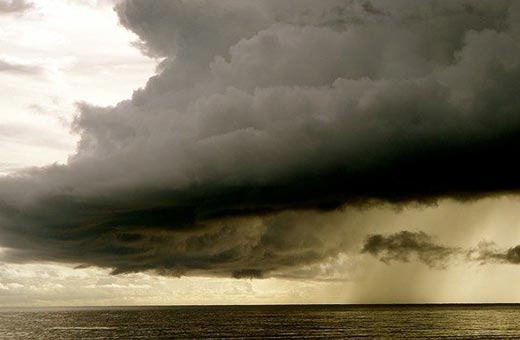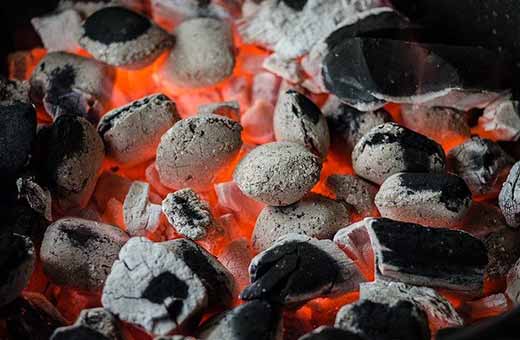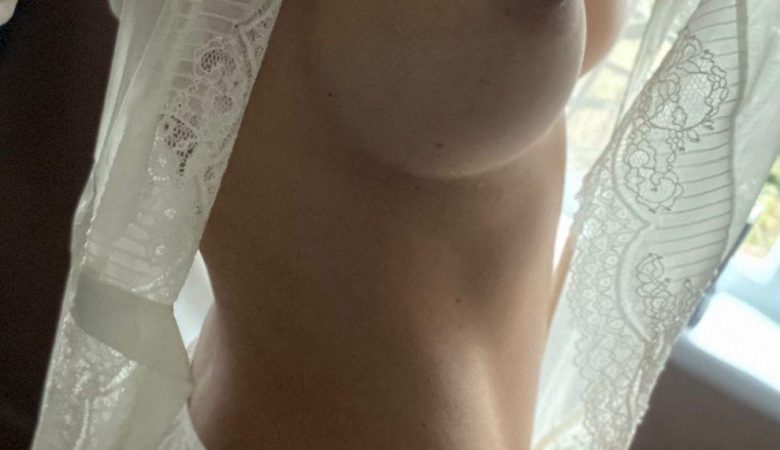[ad_1]
 The sky that morning red as a sailor’s warning, yet nothing by afternoon. No cloud but cirrus, no wind but a hush like the breeze was waiting, like everything was waiting. Waiting for something to fall, or explode. And just before nightfall the sky is a bruised, livid yellow, with dark clouds clumped together, wild and grim.
The sky that morning red as a sailor’s warning, yet nothing by afternoon. No cloud but cirrus, no wind but a hush like the breeze was waiting, like everything was waiting. Waiting for something to fall, or explode. And just before nightfall the sky is a bruised, livid yellow, with dark clouds clumped together, wild and grim.
The boy stops and looks up at the sky, feeling all that waiting press down on his head. Not in a fearsome way, but in the way that he can’t wait till morning, to see what the storm has thrown up on the tide. He hears a shout and looks out past the rocks, shading his eyes more from habit; the jaundiced rays of the sun aren’t in his eyes but slant out across the water and around the dark bellies of clouds. His uncle waves at him from the boat and points around to the jetty. The boy turns and jogs back along the sand till he reaches the rocks, picks his way across their slick surfaces, gripping the ridges with his toes, arms out for balance.
When he reaches the jetty his uncle is already there, lifting things out of the boat. ‘C’mon, hurry up,’ he growls through black whiskers. ‘Bloody sky’s gunna fall and you’re standing there like a stunned mullet. Get over here and help me.’ He puts the tub on the sand and waves his hand at the boy. ‘Get on the other side o’ this,’ and they heave the tinny in over the shingles, while all around them the sky glowers and the wind stirs the heath. They drag it in to the shelter behind the dunes, in amongst the scrubby wattle and banksia. The man throws the bags to the boy then he picks up the tub, and they head down the track, prickly mimosa shivering in the wind and scratching at the boy’s bare legs.
When they reach the cottage, the door is wide open and banging against the wall. Back in the boy’s old town, if that had happened they would’ve thought they’d been robbed. But here it just means it’s windy. In the kitchen the man puts the tub down and there’s a slosh of water and quiet thunk against the sides. He moves back to fasten the door, locking out the wind and the noise and the night. But the dull yellow glare creeps into the kitchen through the window, and the shadows of wattle and paperbark twist and weave across the ground. ‘Go ‘n check the fire,’ the man says, opening the lid on the tub. The boy opens the stove door with the thick cloth, in case it’s hot, but the fire has burned down. It’s still glowing red enough, so he takes a small log, tosses it in, one more, then another, laying them with gaps between so the fire can breathe. He leaves the door open a while, staring into the red-orange glow. ‘Shut the bloody door,’ snarls his uncle.
The boy closes the door and stands at the sink, watching the man lay the silvery body of the fish on the stainless steel. He wants to look away, always feels it would be better not to see, not to remember. But he knows he has to learn this quick brutal act. Knows he is no longer the person he had been. Before. No-one asked if he wanted to go with his uncle. Perhaps no-one asked his uncle if he wanted the boy. But he is here now.
The man holds the fish’s head down with one hand and scrapes at the body with a spoon edge, in short quick jerks. Little specs of silver and pearl fly around. The boy wants to collect them. Wants to reach out and stroke the compact body of the fish. But he fills the sink and his uncle plunges the fish into the water and rubs the sinewy body, then pulls it out and scrapes some more and rinses again. When he takes the sharp thin knife and pushes it into the body near the tail, the boy has to look through half closed eyes. But he can still see it, the cold dead eye, still see the slide of the knife towards the head, the belly opened up, its guts glimmering slick and crimson. His uncle reaches in and pulls the long red ribbon and with a wet sucking and squelching the entrails slide out onto the sink. The boy looks away.
The man leaves the fish to the boy to rinse while he reaches in to the tub for another one. They continue until the tub full of twitching flicking fins and tails is empty and the cleaned fish are in the freezer or in the oven for dinner. Outside, rain spits and scatters across the windows and the roof. The boy senses movement everywhere, but the dark denies any sight of it.
They sit and eat. The man chews with his mouth open and bits of fish and potato cling to his beard. He eats quickly with a wet smacking and slurping. Every now and then he drags one hand across his beard and moustache, dislodging the trapped food, then continues, smacking his lips together like wet rubber. The boy chews carefully, feeling around with his tongue for bones; he has a pile of them on his plate like a little camp fire waiting to be lit.
A sudden flash of lightning flares the world outside the window into daylight. The boy waits, mid-chew, for the crash of thunder, and when it comes it rolls around the sky like a discarded hubcap on concrete. The man barely looks up. ‘Good catch today,’ he says and continues eating, mashing the food to a pulp and swallowing with a wet sigh.
The boy nods. ‘Looks like it,’ and he knows there’ll be no more words wasted.
They clean up in silence. The man pauses at the window, big hands gripping the sink edge, neck craned forward in a rare moment of impending commentary. But he pulls away, one finger diving into his mouth to hook at something caught between his teeth. ‘School tomorrow,’ he says. ‘They’re been on me back about you bein’ there, so …’
‘I know. I’ll be there.’
The man turns back to the window. ‘Storm’s a right bitch out there.’
The boy looks out the window and nods to the dark shine of the glass and beyond, the trees tossing their wild locks against the dirty sky.
In his room he lies under the blankets, hands curled together at his chin, looking towards the gap between the curtains. A plover calls from somewhere out in the night. Every now and then a flash of yellow lights up the gap and darts in around the curtain, then the room returns to darkness. Outside, the wattle tree taps and drags its fingernails across the glass, and something unseen slaps the roof in a disturbing rhythm. He’s tried to put out of his mind the way things could have been, the way things were. The way his mother was always more afraid in a storm than even he was. The way she’d climb into bed with him, patting his back –‘I wish your father was here.’ But he wasn’t. Hadn’t been as long as the boy could remember. So no point to her wishing. No point to his own wishing now. He rolls over, away from the window, and lets the scratch and rattle, the thumping walloping and moaning lull him into a dreamless sleep.
*
 The boy wakes early. His uncle has already left. He checks the fire: glowing coals, perfect for toasting. He sits with the long fork down into the heat, turning the bread when he hears it burning. He spreads butter on the toast, thick jam, pours the tea from the pot at the back of the stove, then builds the fire up for the day. Out the window he can see the sun rising pale and lemony between the scrubby trees. A twitch of anticipation stirs through him as he pictures the beach. He eats quickly sipping on the bitter, stewed tea. Nice of his uncle anyway to leave it for him. He cleans up and grabs his bag from the peg then heads out. He stops to pull the hook across to latch the door closed. There’s nothing inside that anyone would bother stealing, so his uncle never bothers fixing it.
The boy wakes early. His uncle has already left. He checks the fire: glowing coals, perfect for toasting. He sits with the long fork down into the heat, turning the bread when he hears it burning. He spreads butter on the toast, thick jam, pours the tea from the pot at the back of the stove, then builds the fire up for the day. Out the window he can see the sun rising pale and lemony between the scrubby trees. A twitch of anticipation stirs through him as he pictures the beach. He eats quickly sipping on the bitter, stewed tea. Nice of his uncle anyway to leave it for him. He cleans up and grabs his bag from the peg then heads out. He stops to pull the hook across to latch the door closed. There’s nothing inside that anyone would bother stealing, so his uncle never bothers fixing it.
The beach is vast this morning. The water so green and dark, the rocks at the point seem distant, as if the storm has rolled and tumbled them further away. The sand is strewn with seaweed and string and plastic bags and other stuff he can’t identify. The sun has already crept over the rocks and spreads a pale wash of light across the lichen-marked flanks. There’s a smell he can’t identify too. Oil perhaps, or is it just the amount of seaweed lumped on the dirty sand like corpses from the deep. He walks, toes sinking into the wet sand and pebble grit. A small dirty wave crashes in a futile heap at his ankles and flecks of spume wet the hem of his shorts. Hooded plovers strut amongst the piles of seaweed, and scatter on his approach, heads bobbing comically. It’s not nesting time, or he wouldn’t be so cavalier.
He reaches down and tugs at a plastic bag twisted around the kelp. Opens it and walks along shoving in the bags and cans and broken bits of plastic rubbish he finds. Kicking at a pile of seaweed with his foot, the glitter of something small catches his eye. He squats and digs carefully through the mound with his fingers, down through the thick leathery fronds, the thin curled leaves like wet lettuce. And there, nestled amongst broken glass shards is a shell. An abalone shell. His mother had one as an ash tray, but she’d wash it every night to bring back the pearly shine. This one is not whole. It’s a broken scrap, but worn perfectly smooth on the edges and shaped like an oval. He lifts it out of its dark tomb up into the light, wipes its pearly belly with his sleeve. Tries not to think of his mother, lying in her silvery-blue dress. How red the blood against the shine of that dress, in the headlights, in the rain, the car up on the footpath, one shoe in the gutter. He slides the shell piece into his pocket, keeps his fingers wrapped around it. How shrill and sharp her cry, the car careering towards them, as she’d pushed him out of harm’s way. He presses his thumb against the shell. Squats again, moving the seaweed about.
He puts the broken pieces of glass in the bag with the rubbish and moves along the sand, kicking at the seaweed, stopping to rummage through the piles. But there are no more shining treasures, just pieces of wood, bottles, an old rag, a plastic lunch box. The pink plastic bag fills quickly. The singular weight of the shell piece, nestled in his pocket, rests against his thigh.
The distant drone of a motor makes him glance up, and he sees what is probably the school bus disappearing around the point. He has plenty of time to catch it, after it does the big loop and returns.
The front door is unlatched when he reaches the cottage. His uncle is in the front yard chopping wood. He stops when he sees the boy, leans on the axe, swipes at his beard with one hand and says, ‘School, remember.’
The boy nods. ‘Yeah,’ and quickens his step convincingly. Inside he tosses the bag onto the bed, drops to his knees and reaches in under the bed. He slides the tin out then reaches into his pocket for the shell piece, spits on it and polishes its face with his sleeve. Runs one finger over the smooth cool surface and closes his eyes, just for a moment. Then he opens the tin, un-rumples the blue cloth inside and all the secret shiny things tumble onto the floorboards. One rolls away and disappears under the bed. He looks at his cache to see what is missing. Lies on his stomach and peers under the bed but can’t see anything in the darkness. He looks back to the collection on the cloth: five shells, the beer-can ring-pulls twisted together in a strange sculpture, the silver button, fish hook, the brass bell, tiny anchor on its wasted thong, the coin, and now the abalone piece – he places it on the cloth. Nothing missing. What was it then that had rolled so easily away from him? He stretches out again and feels around, patting the floor in unseen spaces. His finger rests on something thin and small. He scoops it into his hand, pulls it out and opens it to the light. His mother’s ring.
He stares at the ring, hardly believing it is in his palm. He strokes it with his thumb, then puts the ring on his little finger, turning it round and around. Pictures his mother staring out a long ago window, turning the ring endlessly on her thin finger. The sound of the axe striking wood brings his head up and he turns to look out the window. His uncle straightens and leans on the axe, wiping his palm on his thigh, then he half turns towards the house as if he’s heard something. Time thickens for a moment, then moves on.
The boy takes the ring off, bends down to the tin and smooths out the rumpled cloth, folding it into the tin. He picks up each item, one at a time, placing them back in the tin, adding the ring last of all and folding the flaps of cloth over. He closes the lid and pushes the tin back under the bed, leaving his hand on its rusty surface just a moment longer, pats it with his fingertips. There is more that shines in the world today, more even than he’d thought.
He hears the front door creak, footsteps in the kitchen. He pulls on socks, pushes his feet into shoes that feel cramped and rigid and slings his bag across his shoulders.
In the kitchen his uncle is cutting bread at the bench. He glances up at the boy, sideways from under bushy brows. Their eyes hold contact for the briefest of moments. Neither of them speak. The man looks back to the bread, cuts through a slice, then says, ‘School?’
‘Yeah, just leaving,’ and he steps out into the day, the sun well up now and bouncing rays off the corrugated iron shed, the water tank, the axe head. Every shiny thing on fire.
***
Keren Heenan has won a number of Australian short story awards, placed 2nd in the Fish Prize, and was a winner in the Griffith Review Novella Project VII. Her work has been published in Griffith Review, Overland, Island, Award Winning Australian Writing and others, as well as in anthologies in the US, the UK and Ireland. Find her on Twitter @keren_heenan and kerenheenan.wordpress.com
. . . . Thank you.
Please support TSS
[ad_2]






